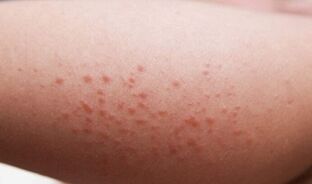
It is often very difficult to determine the presence of the parasite in the human body. It's almost impossible to do it yourself. Because in the early stages, you may simply not understand that something is wrong with your health. And in later stages, when health problems actually begin, symptoms are often attributed to something else and mostly treated individually, without deep understanding of the problem.
There is nothing more disgusting to think of a worm that lives in your stomach, but there are people who want to voluntarily swallow the parasite to lose weight or "detox"
After reading this article, you can study the problem in more detail and understand in time how to identify the presence of the parasite in the body, i. e. restore the overall picture of the body. friend.
What types of parasites are possible in our bodies
Basically, the parasites in our organs are divided into two categories: endoparasites and ectoparasites.
Endoparasites are parasitic on our bodies and other tall creatures, they live inside them and eat the cells of the organism. Endogenous parasites are all worms, lamblia, toxoplasma, echinococcus. It can be both a fungus and a bacteria, a virus.
The second type of bacteria is the parasite. They live on the surface of the body, that is, in our nature, on our body. Their food is our tissue cells, such as our skin, as well as our blood. More specifically, they are parasites such as aphids, lice, fleas, and ticks. In addition, mosquitoes and flies are considered ectoparasites.
How to determine the presence of parasites inside the body with symptoms
How to detect whether there is a parasite in the body possible in both its external form and inner state.
There are many symptoms related to parasites. Since these symptoms are quite common, they are also symptoms of common ailments, people often do not even doubt their presence in the body. Therefore, symptoms are treated separately and they will reappear after treatment.
It is not uncommon to find doctors' recommendations to initiate treatment when a number of symptoms appear from the following groups with prophylaxis against parasites. In any case, it will help you become healthier. Below, we'll look at the complete list of symptoms, categorized by groups, and you'll learn to determine if your body has parasites.
Gastrointestinal symptoms

- constipation.The worms can be quite large. As a result, they may block some of the digestive tract's pathways. Some parasites can completely close the intestines and bile. This usually affects your stools. It can become rare and difficult;
- diarrhea.It is often believed that diarrhea is a well-known reaction to poor nutrition. But this is not always the case. Many bacteria produce hormones that affect stool in this way; Gas
- and gas.Very often the parasite is found in the small intestine, and this often leads to gas, followed by bloating. If the bloating is almost constant, then this is an opportunity to think about the parasite's presence in the body; Irritable bowel syndrome
- .Because parasites live on the fact that they feed on substances in our bodies, such as fat, the intestinal walls are very often irritated. And this leads to certain symptoms and decreased ability to absorb nutrients. So substances are not absorbed, but immediately enter the large intestine leading to problems with the digestive tract.
Almost any parasitic invasion in a blood test will cause an increase in eosinophils.
Joint and muscle pain
The parasite has a specific ability. They can live around the body, have the task of settling in the most convenient place in the body. One of these places is synovial fluid and muscle. Painful symptoms, often similar to those of arthritis, but are not always the case.
The parasite causes great damage to muscle tissue or the immune system. Therefore, their presence in the body develops into muscle pain.
The external manifestation of the parasite

- Allergy
- .The parasite continuously releases toxins. Toxins cause great harm to the body, when large amounts of special protective cells are released. They adversely affect the body, and this leads to the appearance of allergic reactions;
- skin problem.Parasites can not only cause allergies, but also cause many skin sores, acne or pimples and other external reactions. So, think again if you have persistent skin problems. This will help establish the presence of worms;
- anemia.Many bacteria "steal" nutrients and this leads to blood loss. This leads to iron deficiency;
- weight problem.It is generally accepted that worms can only reduce weight, but this is a major misconception, since parasites can increase weight. With great weight loss, the reason has always been that the worms absorb our food faster than we ourselves. Weight loss symptoms are a proven way of knowing if you have a worm infection. But obesity is more complicated. It comes about because our blood sugar is low. The result is irresistible cravings, as this negatively affects metabolism. In addition, obesity can be just a defense response of the body.
For intestinal parasites, the main symptom is fever, nausea, vomiting, loose stools, and a urticaria-like skin rash /
Nervous System Symptoms
- Neurological.Occurs due to the stimulation of parasites of important organs, even of a small nature. However, the person may not notice other symptoms. Thus, you can determine the life of the parasites based on the state of your nervous system.
- Sleep disturbance.Very often a person associates constant awakening with diseases of the nervous system, but this is often the case elsewhere. At night, the liver starts to work, and when harmful substances are removed, our bodies are very active. Because of this, it is possible to wake up during sleep.
- You grind your teeth while sleeping.Certain bacteria can irritate the body to the point of bruising. Furthermore, this is a very common symptom. Thanks to him, you can easily learn to recognize the presence of foreign bodies in adult or more often children's organs.
- Chronic fatigue syndrome.This symptom, in some cases as a single disease, includes many others. These include lethargy, depression, fatigue, decreased attention span. This is due to the fact that the parasites eat a large amount of nutrients and nutrients. And, of course, the body stops clinging to them.

If the brain is affected by cysticercosis, anxiety, headache, seizures, and pseudo-epilepsy are typical.
Other Symptoms
- Immune disorders.A cold, runny nose, and a persistent cough can all be a result of a poor immune system. And that, in turn, is weakened by a lack of nutrients.
- Cancer.One of the most common causes of organ failure and cancer is parasitic. They can enter your organs to the point where they often lead to long-term consequences - serious illnesses.
- Inflammation of the airways.It has been talked about the movement of worms throughout the body. One of the most convenient places is by air. Then there is a cough, phlegm, and a runny nose.
Conclusion
These are the real symptoms of the parasite. Worms can live in your body for a long time.
It is very important to know promptly check for their presence and prevent possible consequences.
















































